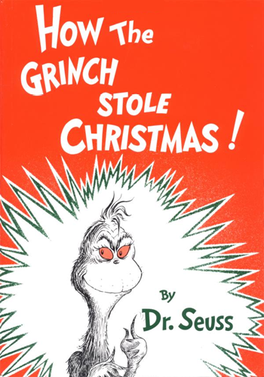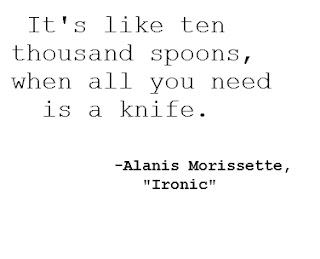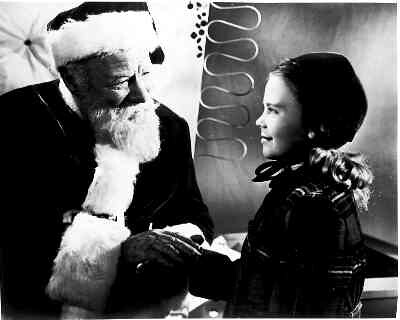In late November and all through December, holiday-themed movies flood the theaters. People want feelgood stories, intense dramas, laughter and action. They want to be entertained, and they're doing it indoors because it's winter and it's cold. Filmmakers need holiday-themed stories to create all those movies. One of the most unusual picks, and one of the better book-to-film adaptations you'll find, was created by Dr. Seuss.
The Book
Arguably the most well-known children's book author of all time, Dr. Seuss has created unforgettable stories like Green Eggs and Ham, The Cat in the Hat and 1957's How the Grinch Stole Christmas, a holiday-themed treat starring my very favorite color, green.
It's because the Grinch is green. He's the hero, or anti-hero, of the story, and he's a good one. He lives on a mountain above Whoville, where Christmas is celebrated with gusto. The Grinch hates the Whos. They sing, they dance, they exchange presents and eat food -- they annoy him. So the Grinch decides to take away their celebration, and steal Christmas.
A bold plan. To carry it out, he's going to need a red suit. If you're wearing a red suit and screwing around underneath trees on Christmas Eve, people are going to think you're Santa Claus. This is just simple logic. It follows that he's also going to need a sleigh -- that's to hold the presents -- and a reindeer. A sleigh and a big bag, you can pretty much find that at any hardware store. But a reindeer...this requires several days of intensive tracking and hunting in the northern territories, and clearly the Grinch doesn't have this kind of time. So he puts an antler on his dog instead, a handy enough solution in a pinch.

And the Grinch steals Christmas. He goes down into Whoville in the middle of the night. He takes their ornaments, their stockings, their brightly-wrapped packages, even the roast beast they're saving for the Christmas dinner feast. Yeah, that's right -- he takes it all, down to the last scrap. During his night of silent, Christmas-stealing terror, the Grinch encounters just one witness: Cindy Lou Who. This little Who wakes up to find the Grinch in her home, but all is well on account of the red suit (proof of the unimpeachable logic). Cindy Lou thinks he's Santa, and the Grinch pats her on the head...and sends her back to bed.
Don't worry -- there is a surprise ending. The Grinch doesn't simply go back to his mountain and laugh the day away, or anything like that. If you don't know the story, I'm officially shocked. It's very well-known, highly popular...and the entire basis for an adaptation that's already 60 years old. Even if you've never seen the book, you probably know the book.
The Films
A 22-minute TV special is one of the best-known adaptations of the story. Look for it on TV during the holiday season, and you'll find it.
Dr. Seuss himself worked on the animated adaptation made in 1966. He wasn't really into the idea at first, but after seeing some animation and hearing some of the songs he agreed. Seuss wrote the lyrics for the songs and the extra lines in the story himself.
He didn't narrate it, though. That honor was given to Boris Karloff, who had a perfect voice for this particular story. Thurl Ravenscroft sings the theme song that's such a big part of the adaptation. The animation is very true to the original illustrations in the book, and the narration is almost exactly the same as the text of the book.
How the Grinch Stole Christmas wouldn't become a feature film until 2000, when Ron Howard turned it into one. But turning a very short children's book into 90 minutes of film...takes a little stretching.
The feature-length film begins beautifully, with narration by Anthony Hopkins that lifts Dr. Seuss's words straight from the page. The viewer meets the Grinch, played beautifully by Jim Carrey, who looks just exactly how he ought to look (only three-dimensional, and not animated). He's up in his mountain home damning the Whos who live down below.
Then, we get to meet some of those Whos. The movie takes us down into the village in the days before Christmas, where we meet Cindy Lou Who and her parents. There are other characters as well, like the Mayor of Whoville and Martha May Whovier. The Whos look just as they ought, and they're frantically celebrating the season by shopping, decorating, shopping, decorating, and sending Christmas cards and packages (presumably, to the Whos who live in Whotown and Whocity).
In a word, it's fabulous. No detail was left out. The film is lavish in all matters of set design, costuming and makeup. The dialogue is first-rate as well. Because there simply isn't enough story to fill an entire film, more has been added. Viewers are exposed to the Grinch's back story, and we even uncover a love interest. Cindy Lou becomes a fully-realized character, whose goal is to find the spirit of Christmas and get past all the obsessive shopping, decorating and eating.
New songs are added, and the original Grinch theme song is punched up a little. The scene of the Grinch stealing Christmas is perfectly re-created from the book to the film. It is one of the top five top-grossing holiday films of all time. Yeah, it's that good. If you haven't seen it, see it. If you've already seen it, see it again. It's the holidays, and green's the color of the season.










































